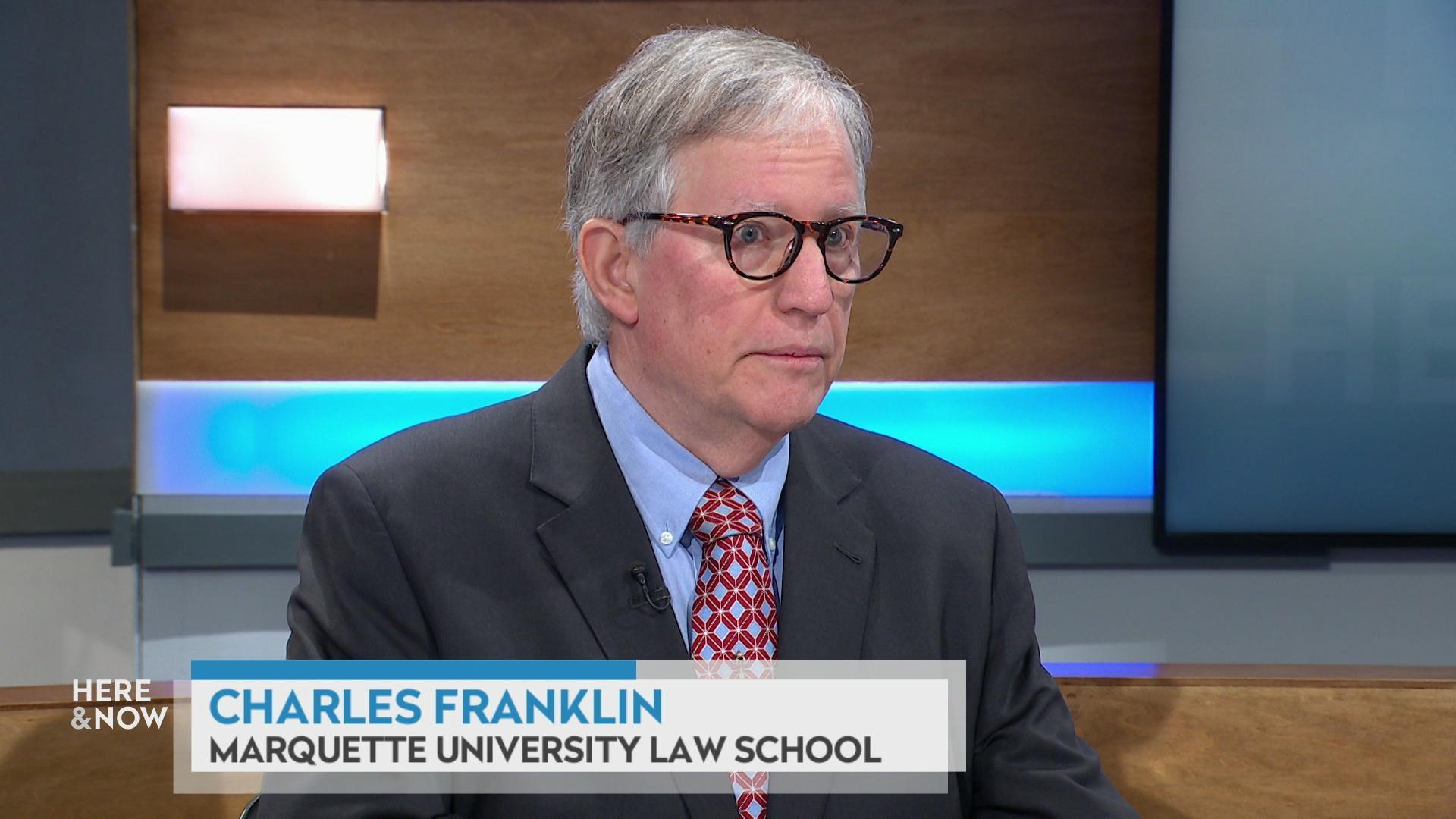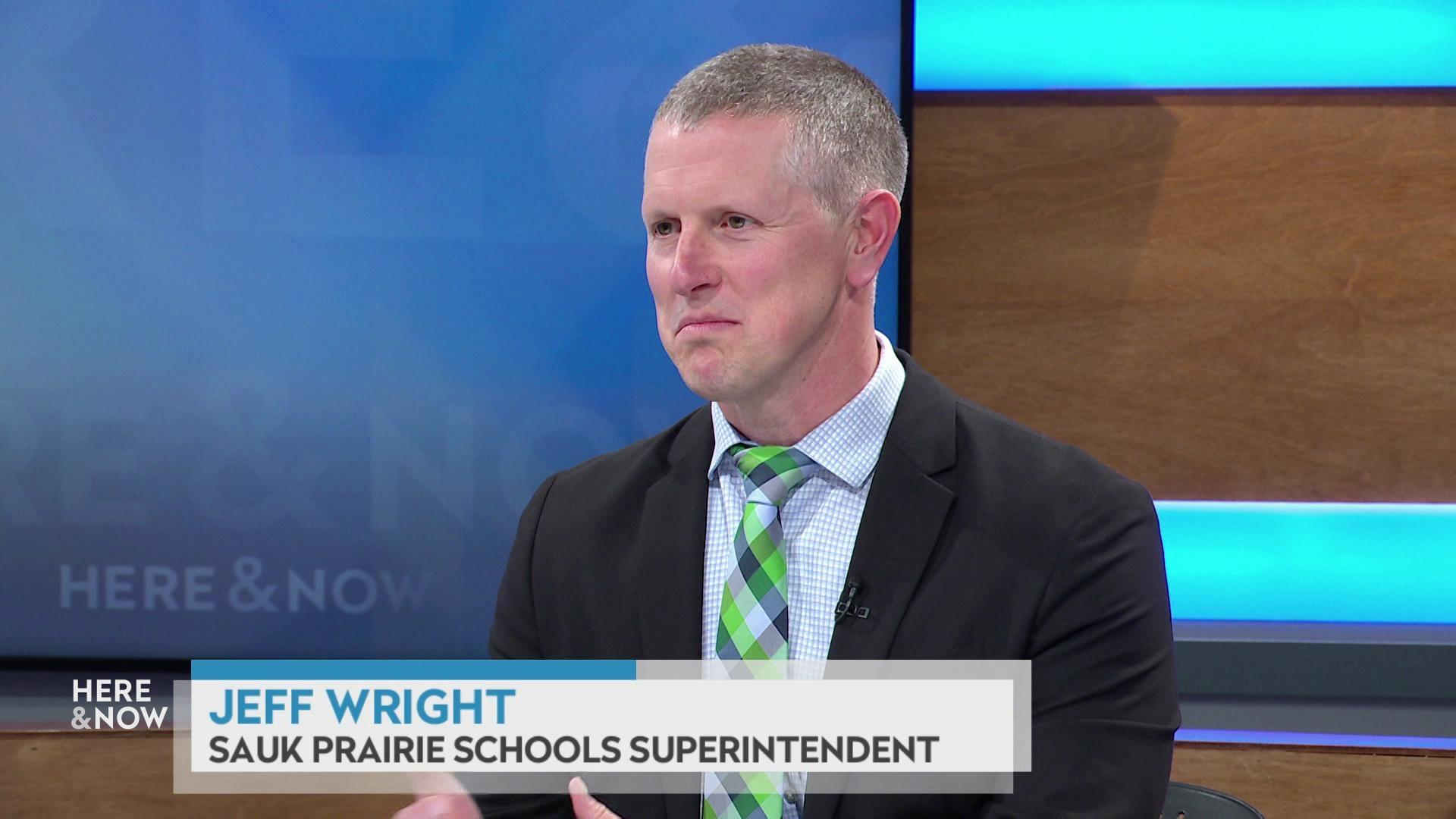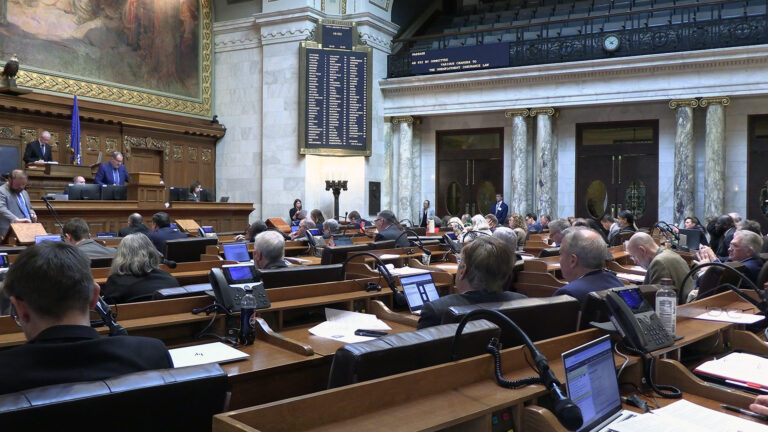How Is Title IX Relevant to Wisconsin's Transgender Student-Athlete Bills?
Here & Now Extra: Shifting federal policies on a landmark anti-discrimination law have played a role in a wave of state-level legislation restricting participation in school sports.
By Kristian Knutsen | Here & Now
March 9, 2021
Since the start of 2021, legislators in more than two dozen states have rolled out more than three dozen bills that limit how transgender athletes can partiticpate in school sports at the K-12 and collegiate levels. Two such bills were introduced in Wisconsin at the beginning of March, sponsored by Rep. Barbara Dittrich, R-Oconomowoc, and Sen. Kathy Bernier, R-Lake Hallie.
The prospect of these bills making it through the state Legislature is unclear, though should either or both be passed, Gov. Tony Evers has signaled that he would veto them. Despite the likelihood that this particular legislative effort will not result in a change to Wisconsin’s laws governing school sports, its timing reflects how changes in federal policy can influence action at the state level.
The language of Wisconsin bills — one for K-12 students and the other for college athletes — would not permit transgender girls to participate in women’s sports, nor transgender boys in men’s sports, and in turn set up a separate “co-ed” classification to accommodate these students. In a memo seeking co-sponsors for the bills, Dittrich cited Title IX, a national civil rights law enacted in 1972 that prohibits discrimination on the basis of sex in education-related activities that receive federal funding.
The memo puts forth a rationale in support of the bill that asserts the “original intent” of Title IX when it comes to how female and male students are defined, using language shared by (now former) U.S. Rep. Tulsi Gabbard, D-Hawaii, in support of a federal bill introduced in December 2020 at the end of the last session of Congress. The Dittrich memo reads:
Title IX was created out of a recognition of a biological distinction between men and women, and the need to make sure women and girls have equal opportunities to compete on a level playing field in sports. The ‘Protecting Women in Sports Act’ is based on science. It safeguards equality and protects the athletic excellence of girls and women competing in sports, while also upholding Title IX’s original intent based on the general biological distinction between men and women athletes based on sex. Title IX protects all biological females from being required to compete against biological males.
Here & Now invited Dittrich to discuss the bill on its March 5, 2021 program — the lawmaker canceled her appearance. The program did interview Megin McDonell, executive director of the Madison-based LGBTQ advocacy group Fair Wisconsin, about its stance on the legislation.
McDonell asserted Title IX is intended to support educational opportunities that are inclusive of gender identity.
“Title IX’s been a cornerstone of advancing those opportunities for women and girls. I think we all agree that it’s important to defend and preserve the impact of Title IX,” McDonell said. “The good news is that ensuring freedom and opportunities for LGBTQ youth, especially transgender youth, doesn’t undermine those protections. We should remember what Title IX is all about — making sure that all girls, including girls who are transgender, have the opportunity to participate in sports.”
For her part, Dittrich has been active on social media since announcing the legislation, advocating for the bill and replying to critics. She quipped about a statement by Evers in support of transgender youth, accused Rep. Mark Spreitzer, D-Beloit, of “man-splaining,” and declared Rep. Lee Snodgrass, D-Appleton, who is chair of the legislature’s LGBTQ caucus, “refuses to support women.” Dittrich has also shared links to items about the bills published by conservative media outlets.
How is Title IX applied at the federal level when it comes to policies regarding transgender students in sports? And does Title IX protect “all biological females from being required to compete against biological males,” as asserted in Dittrich’s memo?
Here & Now extra
Like many disputes concerning the meaning of a given law — perhaps most visibly in back-and-forth interpretations of constitutional amendments — it depends on administrative policy and judicial precedent. The application of a law can vary considerably from one moment to the next, and in the case of Title IX, shifted with the arrival of a new presidential administration.
The language of Title IX is brief and appears to be fairly direct. It reads: “No person in the United States shall, on the basis of sex, be excluded from participation in, be denied the benefits of, or be subjected to discrimination under any education program or activity receiving Federal financial assistance.”
However, it’s the interpretation of “on the basis of sex” that has become a subject of lawsuits and lawmaking. At the federal level, this language means something quite different in March 2021 than it did less than two months previously.
The shift starts with a U.S. Supreme Court decision on June 15, 2020 in Bostock v. Clayton County, in which justices ruled 6 to 3 — with conservatives Justice Neil Gorsuch and Chief Justice John Roberts joining their liberal colleagues — that discrimination by employers against LGBTQ employees violated Title VII of the Civil Rights Act of 1964. The ruling found that workplace discrimination “because of sex” as outlined in that law applies to and protects people in terms of both sexual orientation and gender identity.
Although this ruling didn’t directly rule on Title IX, it led observers to speculate about its potential effect as a legal precedent on the application of that law.
At the same time, there is an ongoing legal battle in Connecticut over its policies allowing the participation of transgender students in the boys or girls high school sport that fits their gender identity. In response to a complaint challenging that policy, the U.S. Department of Education’s Office of Civil Rights found the state was in violation of Title IX. That finding was first issued May 15, 2020, but a revision was subsequently released in August following the Supreme Court decision in Bostock v. Clayton County. Both versions declared that “on the basis of sex” in Title IX referred to sex assignment and not gender identity.
This position aligned with the general stance of the Trump administration, which generally opposed the expansion of individual rights on the basis of gender identity.
Meanwhile, there have been legal battles in other states over the participation of transgender athletes in youth sports — several judicial rulings are summarized by a lawyer writing for the Naitonal Federation of State High School Associations and explain the shifting legal ground.
Policymaking by the Trump administration on this issue continued into its final days in power. On Jan. 8, 2021, the Office of the General Counsel of the U.S. Department of Education issued a memo stating that the Supreme Court decision with respect to Title VII did not apply to Title IX and the meaning of “on the basis of sex” for the latter law. In other words, the position of the federal government was that Title IX did not cover matters of gender identity or more broadly LGBTQ-based discrimination.
Less than two weeks later, though, the position of the federal government on LGBTQ-based discrimination and transgender rights would shift in a much different direction.
On Jan. 20, his first day in office, President Joe Biden issued an executive order stating his administration interprets the Supreme Court decision in Bostock v. Clayton County to mean that Title IX does “prohibit discrimination on the basis of gender identity or sexual orientation.” The order directed federal agencies to review all existing policies that conflict with that position and consider how to take action that aligns with the new presidential policy.
About a month later, on Feb. 23, the U.S. Department of Education under the Biden administration announced it would reverse its interpretation of Title IX as held under the Trump administration. A letter from its Office of Civil Rights stated the agency was withdrawing its position with regard to the Connecticut complaint, declaring that its findings from the previous year were issued without adequate review.
Rep. Dittrich announced the Wisconsin legislation less than a week later.
Similar bills have been introduced in many other states in the early months of 2021.
How sex and gender are defined for purposes of Title IX is at the heart of this matter, and who is able to make these determinations is able to direct the enforcement of that law. The Trump administration interpreted “on the basis of sex” to not apply to transgender athletes participating in school sports that align with their identity. But since then, the Biden administration has taken moves to reverse that previous federal position and allow transgender athletes to participate with the teams that match their gender identity.
A PBS Wisconsin query to the Wisconsin Interscholastic Athletic Association, or WIAA, asked about any complaints over the participation of transgender student-athletes in the state since 2013, when the organization implemented specific eligibility requirements. (A report about the legislation by the Madison-based LGBTQ publication Our Lives discusses these rules in place for transgender athletes at the state level, as well as the policies of the NCAA and International Olympic Committee.) In response, the WIAA’s deputy director, Wade Labecki, noted the group doesn’t track personal information of student-athletes, including “gender orientation,” and has not received any complaints regarding this issue. He noted local school districts are responsible for student eligibility and that the WIAA’s membership don’t currently operate co-ed interscholastic sports.
At the national level, an AP report published March 3 queried sponsors of state-level bills that would limit transgender participation in school sports about specific issues. The investigation found that in nearly every instance, legislators couldn’t cite a specific case where there have been conflicts under their existing state laws.
Editor’s note: Frederica Freyberg contributed to this article.
 Passport
Passport












Follow Us